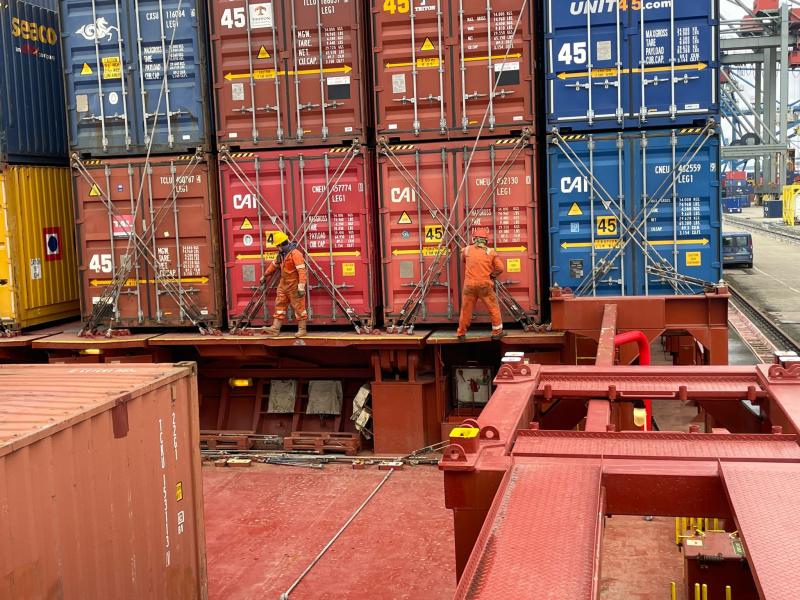Thank you Chair, and colleagues, for the opportunity to address you today. I’m Stephen Cotton, General Secretary of the International Transport Workers’ Federation (ITF).
Firstly, on behalf of nearly 18.5 million transport workers around the world, I want to say congratulations for another successful International Labour Conference (ILC) and acknowledge everyone behind the scenes who has worked hard to ensure a successful conference.
I would also like to thank Gilbert Houngbo, ILO Director-General, for his vision and leadership since he took office last October.
Our world is currently in crisis, and we must unite to overcome it. Recovery from the Covid-19 pandemic has been followed by high inflation, a cost-of-living crisis, political conflict and natural disasters.
Despite these crises transport workers keep the world moving – transporting millions of passengers every day and ensuring our global community receives vital supplies and goods needed.
But we are seeing a decent work shortage in transport and across the global economy – workplaces are becoming increasingly unsafe, employment increasingly precarious, standards of living are falling and workplace rights – including the fundamental right to strike – are under attack.
We have a collective responsibility to build a better workplace, ensuring inclusive and effective labour protections for all workers.
The general discussion on a just transition, building on the ILO guidelines for a just transition, comes at a critical time. Climate justice is inseparable from social progress.
The decarbonisation of all transport modes must be rapid, safe and fair for workers and communities and we must protect workers against worsening climate realities – there must be a just transition.
A just transition is about workers’ power. Workers must have a strong voice on all matters and decisions relating to the impacts of climate change and protecting labour standards.
Governments, employers and workers must actively plan to meet the climate challenge with industry-wide just transition plans for the transport industry.
At COP27, the ITF, the International Chamber of Shipping (ICS), the International Maritime Organization (IMO) and ILO joint Maritime Just Transition Taskforce launched its report showing that over 800,000 seafarers will need retraining by mid 2030s in order to meet the Paris Agreement temperature goal.
The 10-point action plan for training seafarers ensures no additional burdens are placed on seafarers.
In passenger transport, we need to see significant public investment in – and modal shift to – public transport, as a means to cut emissions, drive economic growth and new green jobs, and overcome inequality.
Only by working together can governments, employers and workers achieve change at the scale and speed our planet needs. We must keep building collectively on the progress we have made so far to make just transition a reality.
We also welcome the standard-setting discussions on quality apprenticeships. Young workers are estimated to only make up around 10 percent of the global transport workforce.
Transport is not recruiting and retaining young workers at the rate we need. Young workers need to be able to see clear pathways for a fulfilling career development into high quality, safe and highly skilled jobs. This means the promotion of youth employment, quality apprenticeships, transition from school to work, training and upskilling and a transition from informal to formal work.
We also applaud the Conference for taking decisive action in relation to States’ repeated and flagrant violations of international labour standards.
We cannot forget the critical importance of the ILO's supervisory system, including the Conference Committee on the Application of Standards, in making sure States implement the Conventions they ratify.
Now that a safe and healthy working environment is a fundamental principle and rights at work, we must use this momentum to make safety and health a reality for all transport workers, with negligent employers held to account.
Even in the midst of global crises, we have forged powerful partnerships. The ILO, WHO and ITF Joint Action Group’s recommendations, adopted in January 2023, set a strong precedent on steps to protect transport workers in future health emergencies.
Finally, we want to reaffirm our commitment to the implementation of C190 – and while a number of governments have now ratified the convention – there is still much work to be done with both governments and employers.
Thank you.


